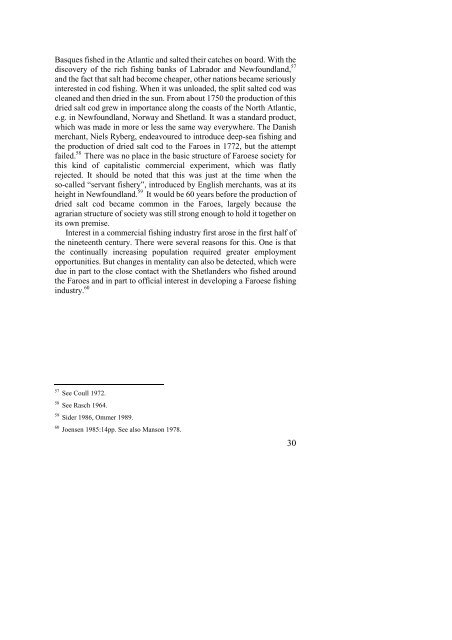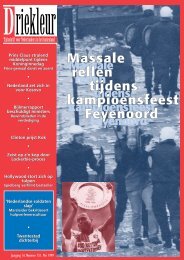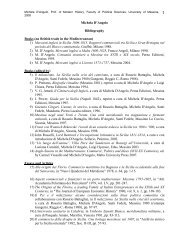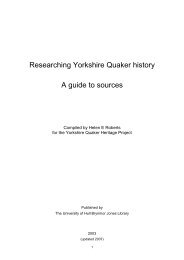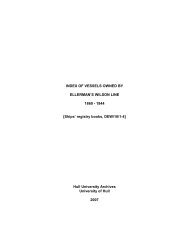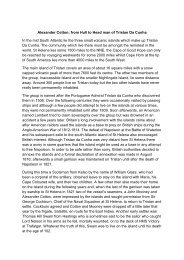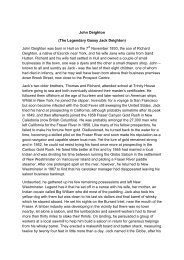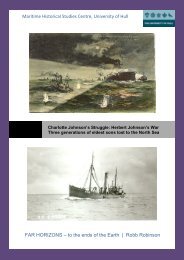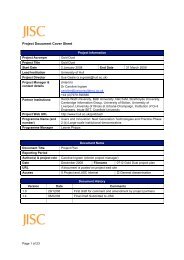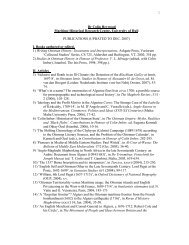The North Atlantic Fisheries, 1100-1976 - University of Hull
The North Atlantic Fisheries, 1100-1976 - University of Hull
The North Atlantic Fisheries, 1100-1976 - University of Hull
You also want an ePaper? Increase the reach of your titles
YUMPU automatically turns print PDFs into web optimized ePapers that Google loves.
Basques fished in the <strong>Atlantic</strong> and salted their catches on board. With the<br />
discovery <strong>of</strong> the rich fishing banks <strong>of</strong> Labrador and Newfoundland, 57<br />
and the fact that salt had become cheaper, other nations became seriously<br />
interested in cod fishing. When it was unloaded, the split salted cod was<br />
cleaned and then dried in the sun. From about 1750 the production <strong>of</strong> this<br />
dried salt cod grew in importance along the coasts <strong>of</strong> the <strong>North</strong> <strong>Atlantic</strong>,<br />
e.g. in Newfoundland, Norway and Shetland. It was a standard product,<br />
which was made in more or less the same way everywhere. <strong>The</strong> Danish<br />
merchant, Niels Ryberg, endeavoured to introduce deep-sea fishing and<br />
the production <strong>of</strong> dried salt cod to the Faroes in 1772, but the attempt<br />
failed. 58 <strong>The</strong>re was no place in the basic structure <strong>of</strong> Faroese society for<br />
this kind <strong>of</strong> capitalistic commercial experiment, which was flatly<br />
rejected. It should be noted that this was just at the time when the<br />
so-called “servant fishery”, introduced by English merchants, was at its<br />
height in Newfoundland. 59 It would be 60 years before the production <strong>of</strong><br />
dried salt cod became common in the Faroes, largely because the<br />
agrarian structure <strong>of</strong> society was still strong enough to hold it together on<br />
its own premise.<br />
Interest in a commercial fishing industry first arose in the first half <strong>of</strong><br />
the nineteenth century. <strong>The</strong>re were several reasons for this. One is that<br />
the continually increasing population required greater employment<br />
opportunities. But changes in mentality can also be detected, which were<br />
due in part to the close contact with the Shetlanders who fished around<br />
the Faroes and in part to <strong>of</strong>ficial interest in developing a Faroese fishing<br />
industry. 60<br />
57 See Coull 1972.<br />
58 See Rasch 1964.<br />
59 Sider 1986, Ommer 1989.<br />
60 Joensen 1985:14pp. See also Manson 1978.<br />
30


